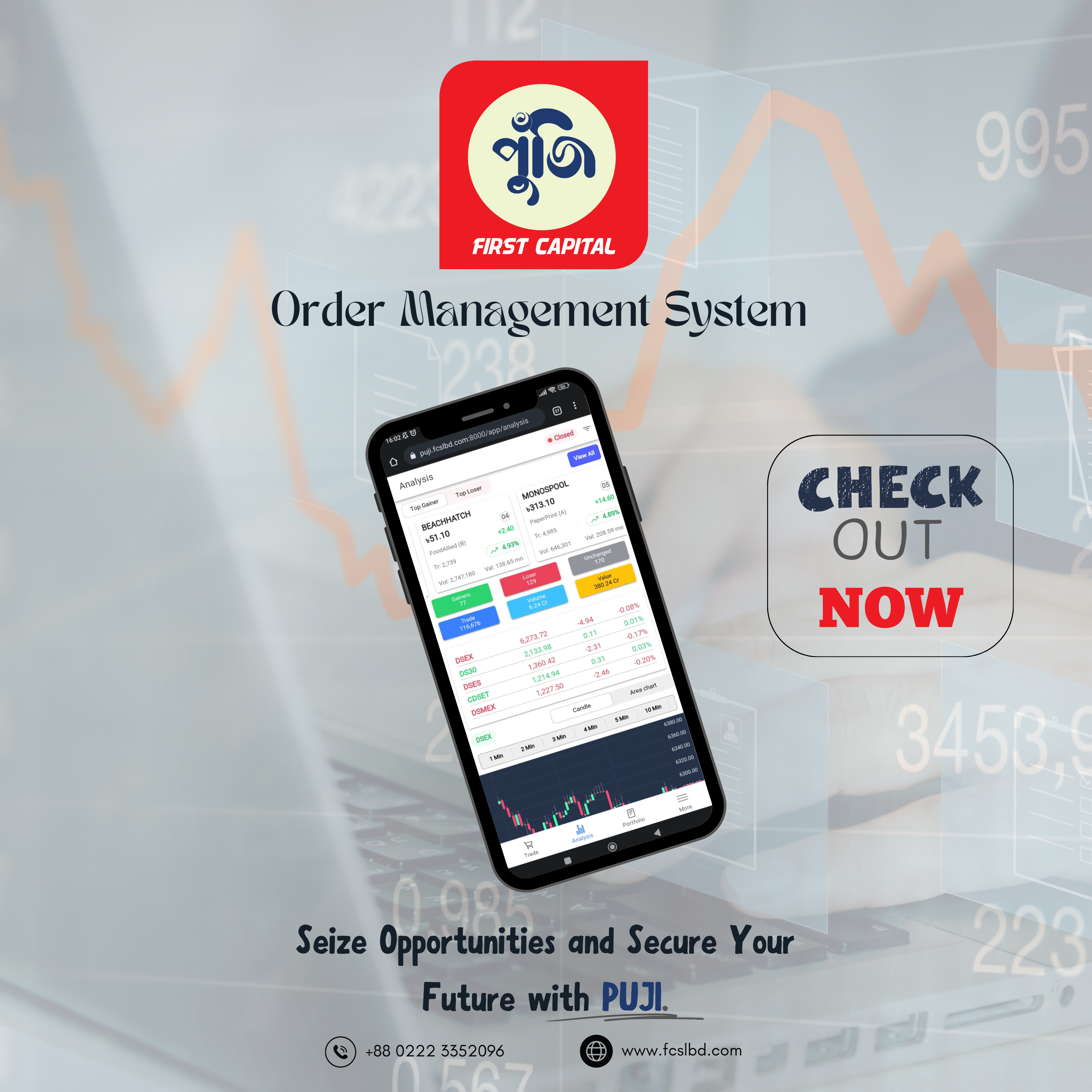The number of beneficiary owner’s (BO) accounts, which are required to trade stocks, has plunged over the years amid prolonged dullness on the country’s stock market and IPO policy changes by the regulator.
According to Central Depository Bangladesh Limited data, the number of BO accounts dropped to 17,48,272 on November 28, 2023 from 31,89,943 on June 20, 2016.
DSEX, the key index of the Dhaka Stock Exchange, hit its lowest in more than seven months to settle at 6,209.44 points on November 27 amid political tensions in the country ahead of the national election and the turnover hit its lowest in eight months to Tk 297.20 crore on November 28 amid thin trading on the falling market.
Experts said that the number of BO accounts plunged due mainly to a prolonged bearishness on the market, floor price restrictions and lack of investment options.
Faruq Ahmed Siddique, a former chairman of the Bangladesh Securities and Exchange Commission, told New Age that the decrease in the BO accounts was because of what’s happening on the market for the past one year.
For a year now, the market has mostly been about trading not-so-good or junk stocks, and there have not been any new chances to invest in new companies through initial public offerings (IPOs) as good companies are not entering the market, he said.
Because of this lack of exciting investment options, fewer people are interested in starting new BO accounts and the people who already have BO accounts are unsure about renewing them, he said.
Right now, the active BO accounts are mostly dealing with these not-so-good stocks and their trade values stay between Tk 300-500 crore, Faruq Ahmed said.
He said that many good companies’ stocks could not trade properly because they were stuck in floor prices.
He said that investors were not interested in trading at these floor prices, causing the market to slow down and hurting BO accounts.
Investors who used to trade with good companies now cannot do that because of these floor prices, adding to the overall decrease in BO accounts, he added.
In July 2022, the Bangladesh Securities and Exchange Commission imposed the floor price restriction on all companies to prevent an excessive fall in stock prices amid economic worries.
Richard D’ Rozario, president of the DSE Brokers’ Association, expressed concern about the decline in the number of BO accounts, emphasising that it is not a positive indicator for the stock market.
The stock market thrives when investors actively participate, contributing to its overall health, he said.
A noteworthy trend is the hesitancy among individuals, particularly those who were previously engaged in IPO business, he said.
He said that a section of these participants were now reluctant to re-enter the market due to the introduction of new pro-rata basis IPO rules.
In the past, a substantial number of BO accounts tied to IPOs were closely.
Richard said that a significant number of these accounts had become inactive, mainly because there was a scarcity of new IPOs in the current market environment and the introduction of new pro-rata basis IPO rules.
This shift has contributed to a decrease in the number of BO accounts, he said.
On January 20, 2021, the Bangladesh Securities and Exchange Commission issued a directive, asking Dhaka and Chittagong stock exchanges to introduce electronic subscription system for application and allotment of shares to the general investors on a pro-rata basis instead of lottery with an effect from April 1, 2021.
The regulator also decided that general investors must have at least Tk 20,000 in investment in the stock market to be eligible for participating in any IPO from April 1, 2021.
The minimum value of application by a general investor for IPO subscription must also be Tk 10,000.
Mohammad Rezaul Karim, executive director and spokesperson of the BSEC, said that the decrease in the number of BO accounts was linked to the shift from distributing IPOs through a lottery system to a pro-rata basis.
He further said that the existing BO accounts were currently all active.
In the past, individuals maintained numerous accounts and some were unaware of the total number associated with their name, Rezaul said.
Many of these accounts were specifically created for IPOs, but a significant number of them were closed due to non-payment of renewal fees, he said.





